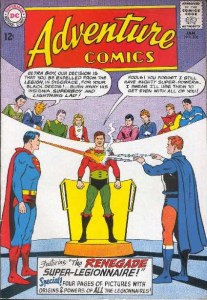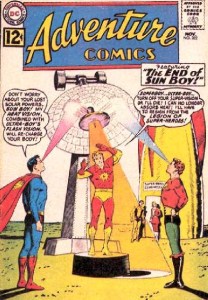
Saturday, November 19, 2016 12:44 PM
“Give me your tired, your poor, your huddled masses yearning to breathe free, the wretched refuse of your teeming shore—send these, the homeless, tempest-tossed, to me. I lift my lamp beside the golden door.”
—Emma Lazarus (from “The New Colossus”)
I can’t vouch for perfect accuracy of the above quotation—I typed it from memory. Sometimes it feels good to type something out, instead of just remembering to myself.
I suppose if I lived in a city, I’d spend part of my day on a soapbox. Once this journal-writing/blog-posting/daily-commentary thing gets under your skin, you become a wild-eyed prophet of sorts—whether you’re smart, stupid, or just plain crazy (or all three, as in my case). And it is odd that an activity so clearly aimed at others’ ears (or eyes) should reveal itself to be pure self-involvement. I start out expressing what I think others should know—and, without fail, I end up telling them what I want to say.

I was just playing some Haydn on the piano. Haydn is the guy—he always puts me in a good mood. Whether you favor Beethoven or Brahms or Stravinsky or Tchaikovsky, you’ve got to give it up for Haydn—he has the best sense of humor of any composer in history. I always loved the drama and the towering emotions of the other great composers—but as I get older, it occurs to me that Haydn was the only composer who regularly laughed at himself. And it takes a certain genius to write music that makes people laugh—I have a hard time telling a joke, with words—it’s kind of awesome that Haydn can do it with sheet music.

I have always loved art and music and poetry. When I experience the great peoples’ masterpieces, I am always a little bit tempted to envy them their seemingly superhuman talents. But I always yank my focus away from that, so that I can just enjoy the wonder of their works. Envy is always just under the surface with me—but I try to rise above it. When you spend your life trying to do something worthwhile, envying the greats is hard to avoid—especially if, like me, you’re a little defensive. But because it pollutes my enjoyment of their stuff, I always try to turn away from envy.

In fact, it kind of bugs me, as an atheist, that I respect the Seven Deadly Sins—but, like the Ten Commandments, there’s a lot of good advice under all the mumbo-jumbo. Religions have that going for them—between the mythological parts, there’s a whole lot of experience-based, how-to ‘life-hacks’ included. It is the codified version of advice from old people—and now that I’m old, and know something about human nature, I find myself in agreement with many religious principles, in spite of my rejection of religion as an institution.

Once you’ve gotten five or six decades under your belt, you witness how people can self-destruct through Envy or Lust or Pride, et. al.—religions label them sins, but even un-washed savages, once they reach a certain age, come to recognize these things as dangers—and that younger people don’t usually see that clearly. Religion includes a lot of old-people-advice. Perhaps that’s why a lot of people get ‘Saved’ or ‘embrace Islam’ in prison—it may be the first time in their lives when they’ve received advice from an experienced source.

Another reason even we atheists have to give it up to religion is the inspiration it has provided to artists and musicians over the years. Bach seemed to feel that his compositions were prayers of a sort—when his fugues invoke a sense of grandeur, they are his way of glorifying God in music. Now that’s religion I can get behind.

And it’s funny that a section of Germany that became so progressive about musical religious strictures (and music was bound by many limitations, back then) would produce, in rapid succession, Bach, Haydn, Mozart, and Beethoven. One might speculate that any portion of Europe that enjoyed a sudden freedom in the creative arts would have produced similar giants—talent equal to our historic composers may have resided in many people, living in many places where such expression was illegal or sacrilegious. We’ll never know—this is the way it worked out. So, that’s a point against religion, as well.

You can tell I’m a lapsed Catholic—we are the only atheists who obsess over religion more, as unbelievers, than we ever did as members of the church. But I’ll tell you why that is. Catholicism is very strict, very powerful—Catholics would make good Jihadists (just kidding—although, in the past, that was actually true in a way). My point is that they make this world seem like a temporary inconvenience—as if the important stuff is outside of reality. That was my home. And now I live in reality—dusty, achy, pointless, bothersome reality. I miss my home—recognizing that Catholicism is a delusion doesn’t change the fact that I was happier under that delusion.

Recent archeological studies have raised doubts about the biblical account of the Jews who left Egypt for Canaan—scripture would have us believe that Joshua led the Israelites in the conquest of Canaan, and renamed it Israel, or ‘the promised land’. But it appears that the writers of Exodus may have indulged in a bit of revision of history, for appearance’s sake. Digs in the area now indicate that the Canaanites held sway long after the appearance of the tribes of Abraham, and that rather than conquer the land, the Hebrew culture insinuated itself into the area over generations. It seems the children of Abraham were not conquerors, but simply a more productive and stable society than the one it lived among.

That struck me, when I heard of it, as an odd sort of propaganda—after all, conquest isn’t very godly—and the fact that the Hebrews changed the lands, and the people, of the area they settled in, non-violently and almost purely out of living in a better, more civilized way than the natives, says something better, to modern ears, than that they ‘kicked ass’. But it also proves that the Old Testament is as much an exercise in creative writing as it is a historical document, or the ‘revealed word of the Lord’.

But there are other, more recent, records that serve as a source of controversy as much as they serve as a source of information. The Bayeux Tapestry, for example, is as much a collection of mysteries as it is a treasure trove of historical information. To begin with—it is not a tapestry—technically it is an embroidery. It is over two-hundred feet long and twenty inches high. And although it commemorates William the Conqueror’s Norman invasion of Anglo-Saxon Britain, the tapestry was worked in the Anglo-Saxon style over several generations. And it is worth noting that French historians are only recently admitting that it was not done in the Norman style.

Damage to the Bayeux Tapestry is to be expected—Sylvette Lemagnen, conservator of the tapestry, has said “Its survival almost intact over nine centuries is little short of miraculous…” And while that is true, the beginning panels and ending panels are either missing or beyond repair. Historians speculate that the tapestry was always stored rolled up—and, depending on how it was rolled, either the end panel or the beginning panel was exposed to air and moisture far more than the rest of it. Thus the story told on those missing or damaged panels remains a mystery—over the centuries, many enthusiasts have attempted to recreate possible replacements. The missing panel at the end, in particular, has inspired several artists to re-imagine the tapestry’s continuation, telling the history of England far beyond its original story of the Battle of Hastings.

The story the tapestry was intended to tell is obscured by the damage and by the various interpretations of certain scenes and Latin phrases (the exact truth of which has been lost or forgotten over the centuries). But the tapestry still illustrates for us a host of facts about the Norman invasion—and tells another, unintended, story—about how those 11th century Britons lived, worked, and fought. Above and below the main scenes in the tapestry are borders that depict a variety of subjects. People are shown fighting, hunting, weaving, farming, building, and in other activities. Animals, both real and fantastical, are also used as border decorations. Many tools, weapons, and techniques of the times are clearly illustrated. And the story told by the major scenes is augmented by Latin labels, comments and explanations (which are referred to as tituli—which I guess is Latin for ‘sub-titles’, or something).

All in all, it is an awesome thing—a piece of embroidery, showing what amounts to an historian’s paradise—and it outlasted a multitude of castles, fortifications, and whole nations—a roll of fabric that only becomes more priceless as it disintegrates. And the most capricious aspect of all is that this ‘Britain’s first comic-strip’ tells us more about that time than all the source documents or written accounts that survive from that age.
Sunday, November 20, 2016 5:24 PM
I’ve been pondering the beginnings of formal music in Western Civilization. There has always been folk music—or so I assume, since even children will hum or whistle or stomp to a rhythm—but since folk music was ephemeral, passed from parent to child, never notated, never recorded, that is the only assumption we can make about early folk music.

Some records have survived—the Bulgarian Women’s Choir famously performs songs that reach back to the work songs, love songs, and laments of the peasants of Tsarist Russia. Musicology researchers in 1920s USA found folk music among the hill-people that may be near-perfect preservations of that of the Elizabethans who first settled there—and British, Irish, and other musicologists have found similar hand-me-down relics of the folk music of the British Isles, closer to their origin. Many sources from many places give us remnants of the music that existed before music became the formalized fine art we practice today.

But when I speak of our ignorance of folk music, I mean that we don’t know where the surviving fragments evolved from, what came before that, and what came even earlier. We can never know—because music has its own pre-history, which dates to far more recently than pre-history in general. I assume that people made music for millennia, but the ‘civilizing’ of music in the formal notation and harmonies that we loosely call ‘Classical Music’ is the first time that any records of music were made. There is some notation stuff from the Roman Empire—but nobody knows what scale it’s based on, and other important contextual stuff that would allow us to translate it into a performance—that isn’t an exception, so much as an example of my point.
So, aside from whatever we might guess, or imagine, or assume about music’s history, the very beginning of its recorded history was Gregorian Chant. Original manuscripts of Gregorian Chant still exist today—and they are still often sung as written, today, by groups that specialize in archaic music. I believe there is an ensemble of monks who are famous for their recordings and performances. The Vatican preserves some beautifully illuminated neumes on original parchment.

In the late 800s, something called the Metz project developed a system called ‘neumes’, which would develop into today’s standard staff notation. The Gregorian chants from all the surrounding areas were collected and recorded using neumes—and thus the church standardized its musical portion of the liturgy. These chants were very simple by today’s standards—to our ears they sound quite monotonous, but there is a rough grandeur to them—and their main purpose was in singing the words from scripture—or, really, chanting them.

As with anything, formal music then developed through a combination of new ideas butting up against established norms, popularity overcoming prurience, and tradition often stifling innovation. And there was a lot of ground to cover, if we were to get from Gregorian chant all the way to Ariana Grande, so it isn’t too surprising that it took centuries for music to reach the variety and sophistication we enjoy today.

The church would remain the sole source of formal music for centuries—until the advent of court musicians, members of a royal household whose sole function was to create musical entertainment. After that, further centuries would see formal music confined to the church and the nobility. Don’t worry—the regular folks still had their folk music—and if I had to choose, I might have preferred their entertainments over the renaissance and early baroque composers’ refinements.

Classical music would not see verve equal to Folk music until the advent of Ragtime and Jazz. Even when a composer like Brahms would adapt a Hungarian folk tune, say, its wildness would be contained by an over-civility inherent in composed works of the age. So don’t feel too bad for the poor riff-raff excluded from the fancy music chambers of royalty—they knew pleasures far more vital than those heard by the stuffed shirts at their concerts.
In those pre-industrial times, a commoner’s life was hard work—the chance to gain a post as a church musician or a court musician was no small advantage—and the internecine rivalries and petty squabbles of the musicians vying for these posts was a constant. The film “Amadeus” shows us something of this, but in a rarefied form, since its ‘villain’, Salieri, is tortured by envy over Mozart’s heavenly talent more than his professional position.

We also note the high number of composers who come from musical families—Bach, Mozart, Beethoven, Brahms, and others had musician parents, even musician grandparents. A sure sign that competition for these sinecures was fierce: once someone got their foot in the door, they did their best to secure the same for their children. Though in fairness, every trade and career in those times was primarily handed down from father to son. Women, with rare exceptions, were excluded from the music profession.

I used to think of composers as wise men who sat writing down notation all day—but I’ve come to realize that many of these great composers led lives of constant busyness. You can read it in their records—complaints about the amount of work expected of them, their students needing training, their ensembles and choirs needing rehearsing, problems with money, instruments, venues, and preparations for big events—and in their few, free, hurried moments they would jot down the actual music we love them for, even today.

I doubt most people consider the effort involved—writing down every note sounded by every instrument and choir-voice, in separate manuscripts for each performer’s music-stand (and this was back using a quill pen and rough paper)—the notation alone must have been incredibly tedious, notwithstanding the need for the finished product to create beautiful music. Thus I have come a long way from seeing my books of piano music as ancient, alien diagrams from the forgotten past.
Today, when I play, I think of that person—the life they led, the place and time they lived in, and the shared humanity between myself and this or that guy who lived in 15th century England or 16th century Germany. If you listen closely, you can almost hear them saying ‘hello’. It’s a little miracle.

























































































































































































 Thursday, October 16, 2014 8:50 AM
Thursday, October 16, 2014 8:50 AM



